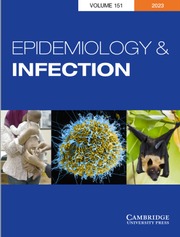Article contents
Growth of Streptococcus pyogenes in milk stored at atmospheric temperatures
Published online by Cambridge University Press: 15 May 2009
Extract
1. Streptococcus pyogenes multiplies readily in sterilized milk stored at 22 and 18° C., and more slowly at 15° C. In fresh raw milk this organism begins to multiply slowly only after 48–72 hours of storage at 18–22° C. In laboratory pasteurized milk the result is similar, but both commercially pasteurized milk and raw graded milk bottled for distribution sour too rapidly for multiplication to take place after artificial contamination. These facts suggest that widespread epidemics are rarely due to extensive multiplication of S. pyogenes in milk during commercial or household storage.
2. The initial degree of contamination of milk with S. pyogenes has no influence upon this organism's ability to multiply during storage.
3. The failure of S. pyogenes to multiply during storage is due to (a) its natural reluctance to grow at atmospheric temperatures, (b) the bacteriostatic action of the milk, and (c) the readiness with which saprophytic bacteria multiply at atmospheric temperatures.
4. It is contended that infected cows play a major part in the spread of milk-borne S. pyogenes epidemics, and relevant literature is quoted to support this view. It is urged that routine investigation of apparent milk-borne epidemics should include the immediate bacteriological examination of an individual sample of milk from every cow concerned in the supply under suspicion.
Information
- Type
- Research Article
- Information
- Copyright
- Copyright © Cambridge University Press 1937
References
- 9
- Cited by

